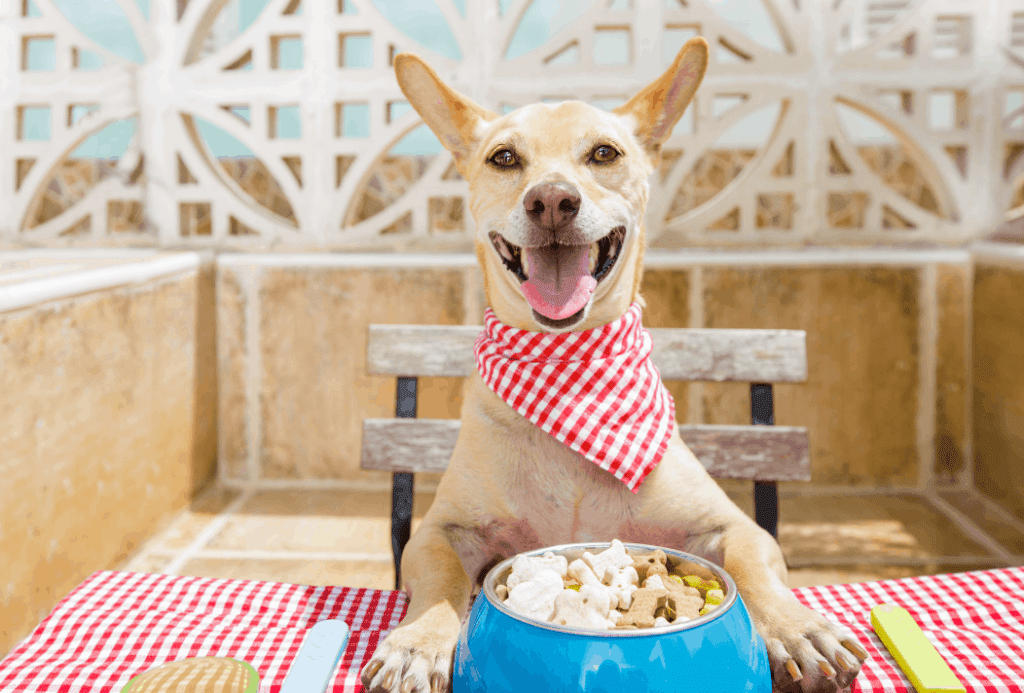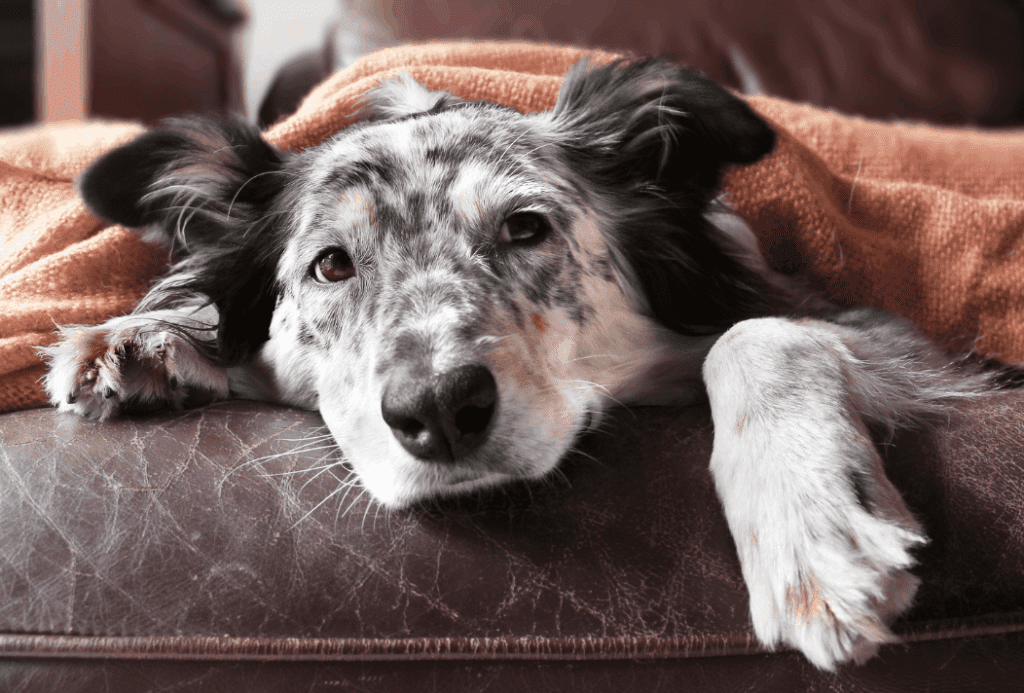Is a Grain-Free Diet Good for my Dog?
The dog food market grows each year, with more and more food choices available. Pet owners are often unsure about what food is best for their pet.
Many companies use advertising, which compares domesticated dogs with their ancestors. They claim that wolves cannot digest grains; therefore, grains should not be in dog food. This information is incorrect. Dogs are omnivores; grains are beneficial for dogs unless they have certain health conditions.
Common misinformation spread by these advertisements is that dogs cannot digest grain, which is hard on the digestive system, and grains are a common source of allergies.
Grain-free dog foods are not good for your dog, unless your veterinarian recommends it for a specific health condition.

What’s the latest controversy on grain-free diets?
Grain-free dog food and cardiomyopathy
Grain-free is a popular option that is offered across many food lines. With the increasing popularly, veterinary cardiologists noticed that they were seeing an increase in dogs with dilated cardiomyopathy, including breeds without a genetic predisposition for the disease.
These veterinarians noticed that the dogs with dilated cardiomyopathy were being fed boutique type grain-free diets. The FDA began investigating case reports submitted by veterinary cardiologists. After evaluating the data, the FDA published a report possibly linking grain-free dog foods to dilated cardiomyopathy.
The exact mechanism is not entirely understood but is thought to be related to taurine deficiency. The investigation is still underway.
The report notes that only cases with a confirmed diagnosis of dilated cardiomyopathy were studied. The diagnosis is expensive and complex. Many owners are not able to afford a full diagnostic workup and therefore were not included in the study.
The exact number of cases is underrepresented, as only reported cases were studied. The article also notes that there is no routine tracking and surveillance system like there is in humans.
Grain-free dog food warning
In 2018 the FDA issued a statement regarding diet-associated dilated cardiomyopathy in dogs and cats. An updated version was published in June 2019. Click here for the full article.
Multiple diets have been implicated, with 50% of the cases coming from three diets (Acana, Zignature, and Taste of the Wild), although the study found problems in 13 other companies’ dog foods as well.
Of the cases, over 90% were feeding grain-free. 93% had peas or lentils as the major grain substitute.
Dilated cardiomyopathy is rare in small breed dogs. However, the FDA diet investigation reports the disease in a wide range of breeds, ages, and weights.
Should I feed a grain-free diet to my dog?
Grains are a good source of fiber and carbohydrates for dogs. Grain-free dog food should not be fed unless your veterinarian has recommended this type of food for your dog.
While grains can be the source of allergies in dogs, this is very unusual. The diagnosis of a specific allergy is a complex process that requires a series of tests from your veterinarian.
There is no reason a dog should avoid grain unless directed by a veterinarian.

What is Dilated Cardiomyopathy?
Dilated Cardiomyopathy is a fatal heart disease with a genetic link that is typically seen in large and giant breed dogs, including Doberman Pinschers, Great Danes, and Irish Wolfhounds.
It is rare in small breed dogs. The disease affects a higher number of males than females and is typically seen in middle to late-aged dogs.
The disease is characterized by decreased contractility with secondary ventricular dilation and cardiac enlargement. The heart does not pump blood effectively. The body responds by retaining fluid.
Dilated cardiomyopathy is treated with medications. The disease may be gradual, leading to congestive heart failure. In some dogs, sudden death occurs.
Clinical signs include lethargy, decreased appetite, weakness, and weight loss.

What is taurine?
Taurine has long been considered an essential amino acid in cats. This means that a cat must have a diet containing taurine.
Taurine is not considered an essential amino acid in dogs. This means that it does not have to be present in a dog’s diet, because it can be synthesized from dietary cysteine and methionine.
The FDA reports that nearly all the problematic diets did have methionine-cystine values above the minimum nutritional requirement. The FDA is continuing to collect data to understand the dietary link to dilated cardiomyopathy and cardiovascular system changes. They are expected to continue to provide updates.
Switching from grain-free dog food back to regular
The following steps are recommended if a dog is currently on a grain-free diet.
- If the dog appears to be healthy and is not showing signs of cardiac disease: Change the diet to a high-quality grain containing diet recommended by your veterinarian. Switch dog foods over a week or two, to avoid gastrointestinal upset. Gradually increase the amount of the new diet, while gradually decreasing the amount of old grain-free dog food.
- If you do not want to change the diet: Have your dog’s taurine levels checked and an echocardiogram performed.
- If myocardial failure is identified on the echocardiogram: Change the diet and supplement taurine.
- If taurine is levels are low: Change the diet and supplement taurine.
Make sure to repeat the echocardiogram in four to six months to assess the resolution of myocardial failure. Taurine supplementation should only be given as directed by a veterinarian as long-term overdosing may occur.
Advice for those considering a grain-free diet
Consult your veterinarian before feeding a grain-free diet. A potentially problematic grain-free diet is one with peas or lentils as the grain substitute. Grains are a healthy part of a dog’s diet. Grain-free dog food should not be fed unless recommended by your veterinarian for a health condition.
How do I select the best dog food for my dog?
Your veterinarian is the best source of information regarding what type of food is best for your dog.
Remember that when buying food based on a commercial, a hefty advertising budget may result in an attractive ad, but that does not indicate that research has gone into the product.
Feed pet food brands that research their products and provide evidence that their foods are safe and beneficial for pets.

Rely on your veterinarian to make the best diet choice for your dog. Do not follow the advice of a commercial, pet store employee, or breeder. These people may mean well, but likely do not have formal education in canine nutrition.
For help selecting a proper diet for your dog click this link.
Make sure that the food you select has an AAFCO label, which means that it meets minimum nutritional standards.
If you cook meals for your dog, be sure that the diet contains the correct amounts of vitamins, minerals, and essential amino acids. The diet should contain appropriate amounts of carbohydrates, proteins, and fats.
Balanceit.com provides veterinary nutritionists who can evaluate your home cooked diet and make nutritional recommendations, so you know that it is a balanced diet that is healthy for your pet.
Remember that significant research and education have gone into the field of veterinary nutrition to understand the dietary needs of dogs. Rely on your veterinarian and companies that produce scientific studies to provide that their foods are safe and beneficial.
References
1.Rishniw, M., Pion, P., & Kittleson, M. (2019). Diet-related myocardial failure in dogs. On the Veterinarian Information Network.
2.FDA (2019). FDA Investigation into potential link between certain diets and canine dilated cardiomyopathy. Retrieved from: https://www.fda.gov/animal-veterinary/news-events/fda-investigation-potential-link-between-certain-diets-and-canine-dilated-cardiomyopathy.
The post Is a Grain-Free Diet Good for my Dog? appeared first on VetBabble.




Post a Comment